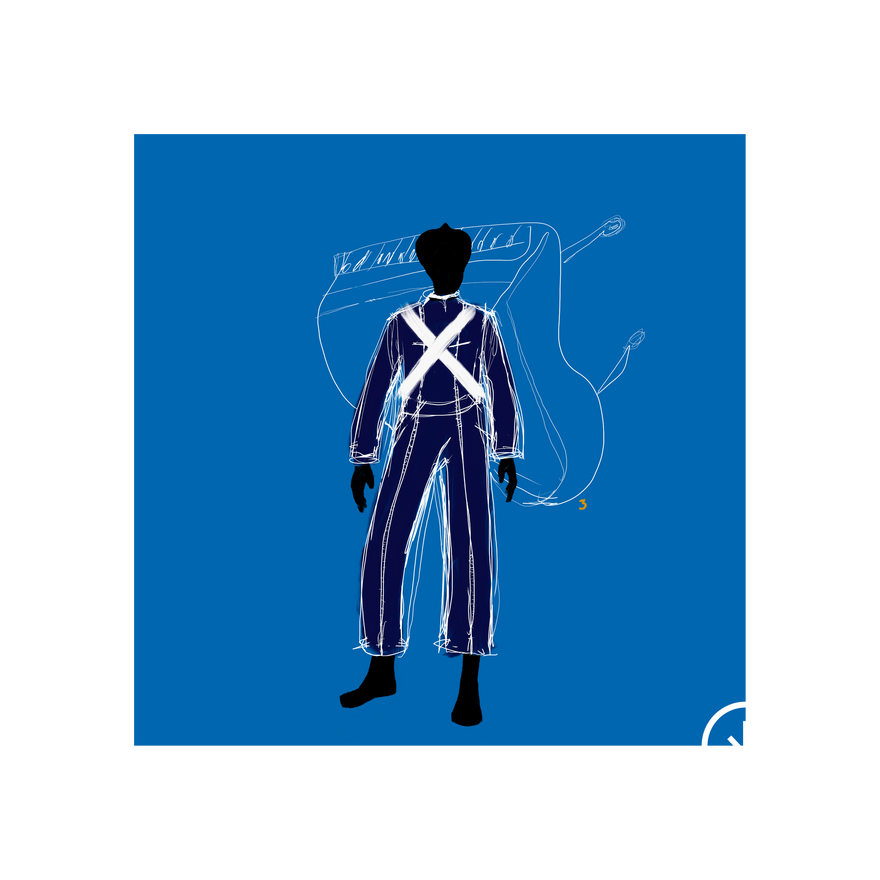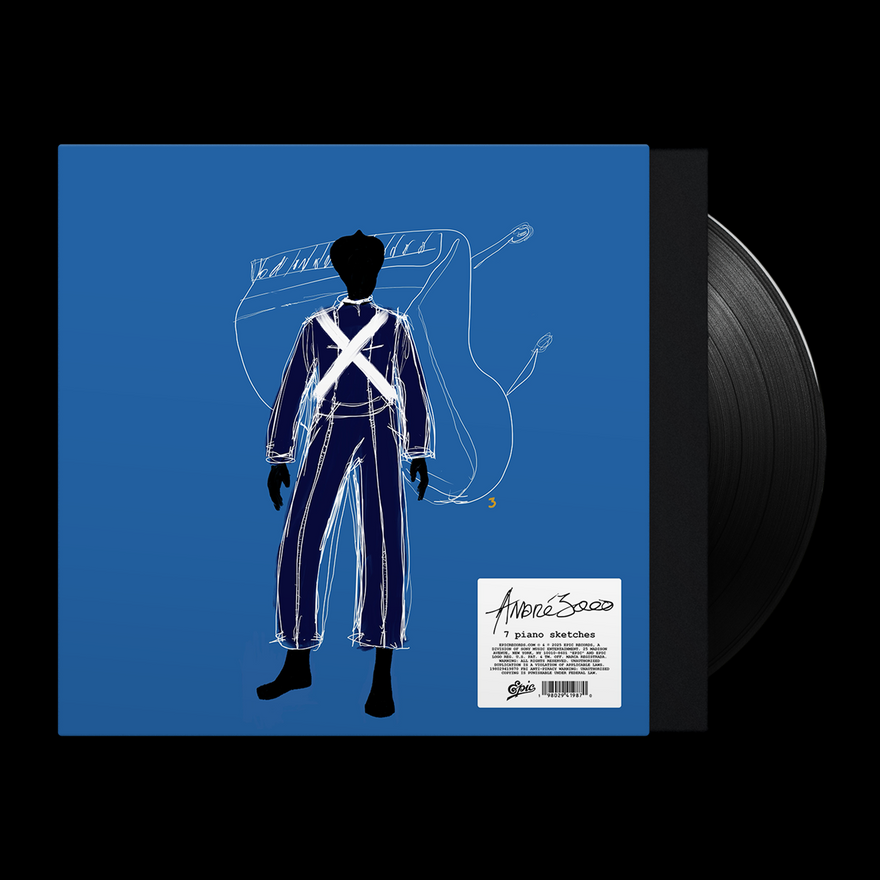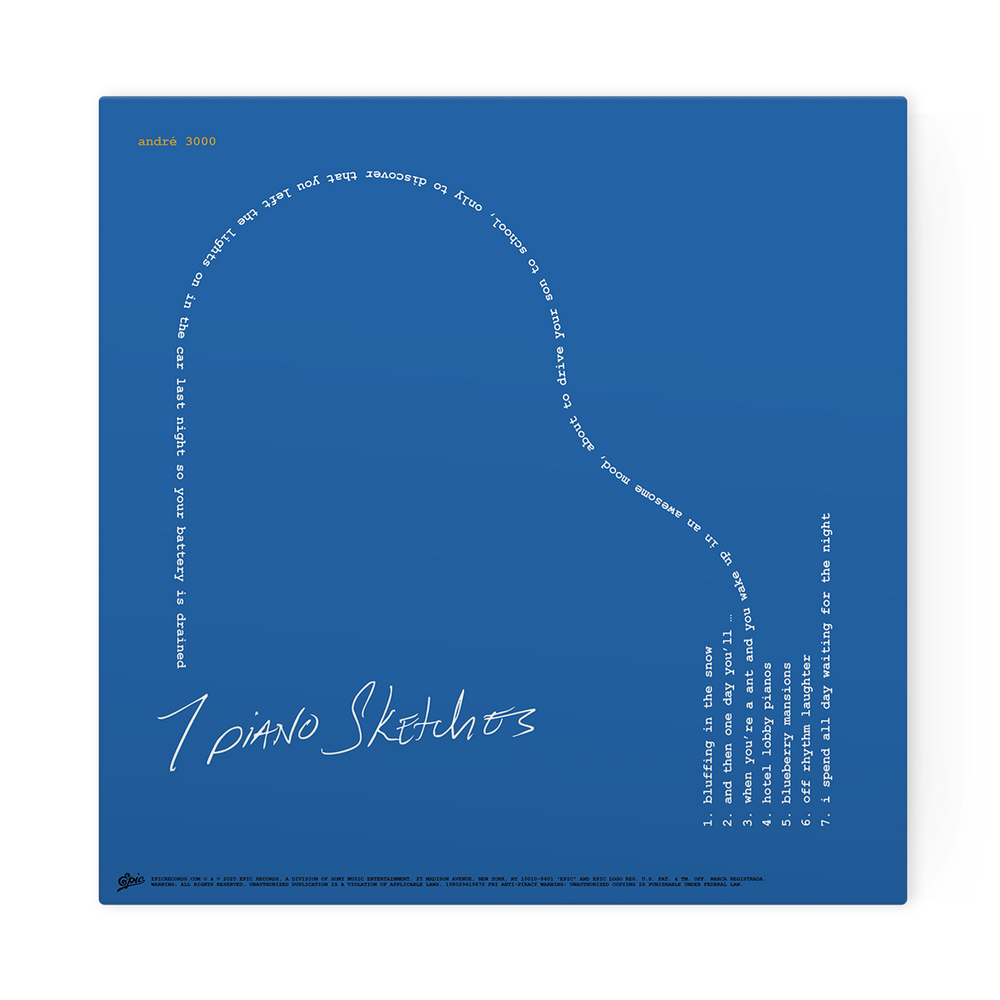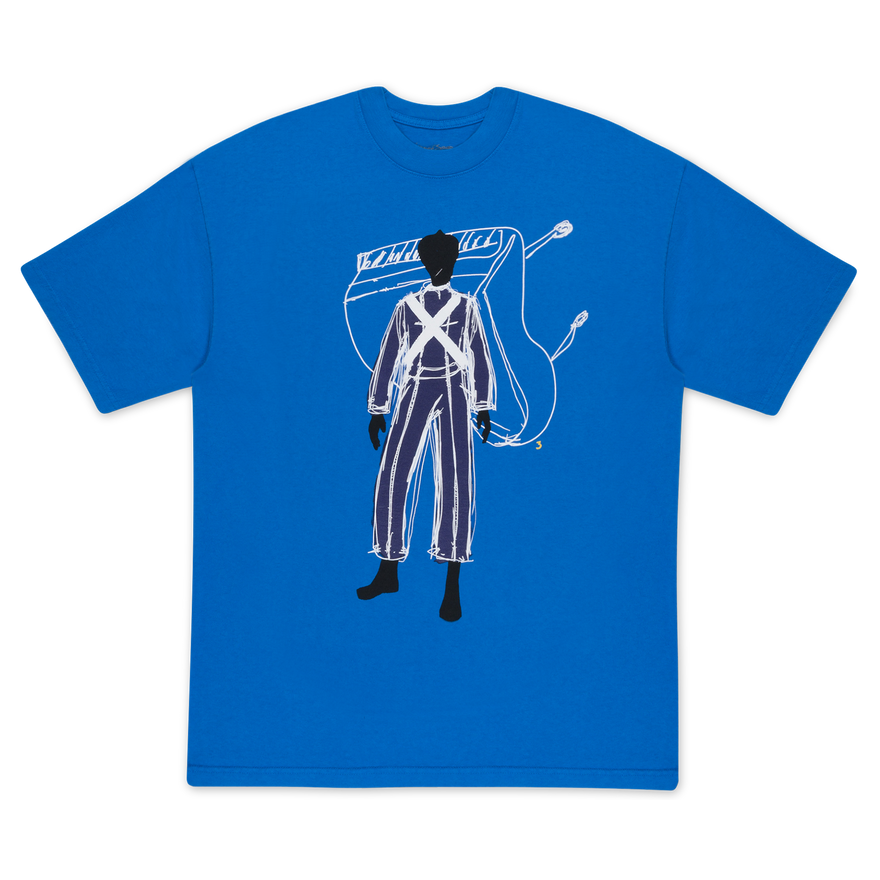André 3000's "7 Piano Sketches": The Quiet Revolution We Didn't Know We Needed
Explore André 3000's "7 Piano Sketches," a musical revolution weaving simplicity and depth, defying mainstream noise with its intimate, artistic freedom.

In a world relentlessly beaten down by the clatter of commercialism, André 3000 emerges like an unexpected melody, a whisper cutting through the cacophony. His latest offering, "7 Piano Sketches," stands as an intimate declaration of independence, a nod to the raw power of simplicity in an age overwhelmed by superficial complexity.
André 3000's surprise drop teeters on the edge of what we expect from a musician steeped in the mythos of hip-hop royalty. Here lies a collection without syllables, without the rollicking verse that once commanded stadiums. Instead, we find stripped-back improvisations, melodies that bubble up from a deep well of instinct and introspection. In doing so, André offers a quiet rebellion against the noise, allowing us to rediscover the art in silence.
The Elegance of Unspoken Narratives

"7 Piano Sketches" isn't about dazzling with technical prowess or ostentatious production. André's recordings, shared casually among friends and family, convey a sincerity often absent from the polished tracks churned out by industry machines. He calls it "The Best Worst Rap Album in History," a tongue-in-cheek dig at the genre's norms, choosing instead to revel in freedom — artistic freedom that feels genuinely dangerous in its honesty.
Intrinsically, these sketches hint at the fragility of human emotion, a theme far removed from the sanitized sentiments so often packaged for mass consumption. André's music sounds like it's breathing, a living entity inviting us to ponder the spaces between notes where unspoken narratives reside.
Breaking Tradition, Healing Through Creation

This unexpected project reflects not just a personal journey but a wider potential for transformation, hinting at the therapeutic role of music beyond entertainment. The act of creation, as André demonstrates, can be an antidote to the dissonance of modern life. Here, we encounter the potential for music as a meditative practice, a conduit for healing in a world yearning for genuine connection.
André's sonic rebellion shines brightest when juxtaposed against the gleaming surfaces of today's music scene. In his understated delivery lies a profound statement on modernity's need for sincerity over spectacle, for gritty beauty over hollow hype. Through "7 Piano Sketches," André 3000 reminds us that the soul of music is not found in its volume but in its capacity to resonate with our most human experiences.
The Timeless Relevance of True Artistry

As OutKast prepares to be immortalized in the Rock and Roll Hall of Fame, André 3000 stands poised at the precipice of nostalgia and innovation. His capacity to surprise and evolve defies the industry's often stagnant rhythms, proving that true artistry is timeless.
In our collective scramble for authenticity, "7 Piano Sketches" may be the subtle revolution we didn't know we needed. It serves as a clarion call for art that speaks to the intangible, positioning André 3000 not just as a musician, but as a beacon of possibility in a landscape desperate for real rebellion, real danger, and undeniably real emotion.




